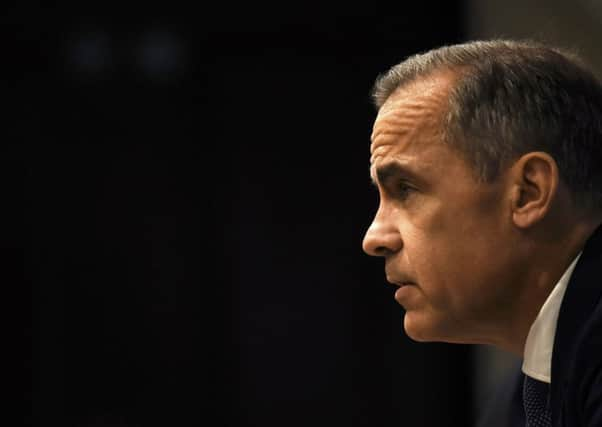Carney unveils £150bn lending boost to keep economy moving


The pound plunged to a 31 year low last night as Mr Carney sought to contain the fallout of the Brexit vote by keeping banks lending to prevent the economy slowing. While he stopped short of repeating recession warnings, he said the UK faced the prospect of a “material” slowdown in the economy and that risks the Bank had feared ahead of the referendum had begun to emerge.
The comments came as two investment firms suspended trading in their property funds as investors scrambled to pull their money out of UK commercial property holdings.
Advertisement
Hide AdAdvertisement
Hide AdAviva moved to halt trading in its £1.8 billion property fund, while asset manager M&G Investments temporarily suspended trading in its property portfolio and feeder fund.
Their decision comes a day after Standard Life Investments stopped dealing in its £2.7 billion UK Real Estate fund.
The suspensions hit the pound, which dropped below 1.31 US dollars for the first time since 1985 and sunk to its weakest level against the euro since 2013 at 1.17 euros.
In his third statement since the Brexit vote, Mr Carney sought to assure that action taken by the Bank was helping shore up the economy and financial system.
Advertisement
Hide AdAdvertisement
Hide AdHe said: “The Bank has a clear plan. We are rapidly putting its main elements in place. And it is working.”
The Bank will reduce the capital required to be held on banks’ balance sheets by £5.7 billion, which it said would help bolster their lending firepower by up to £150 billion.
Chancellor George Osborne hailed it as an “important move” as he met with major lenders to discuss the response to the referendum result.
Mr Carney added: “Today’s action means that UK households and business who want to seize viable opportunities in a post-referendum world can be confident they will be supported by the financial system.”
Advertisement
Hide AdAdvertisement
Hide AdIn its twice-yearly Financial Stability Report, the Bank confirmed risks to the economy, such as the UK’s gaping current account deficit, which stands close to all-time record highs, at 6.9 per cent of gross domestic product.
But it said despite bank share falls of up to 20 per cent since the referendum, the UK’s financial system is in good health, having raised more than £130 billion in “rainy-day” capital since the financial crisis.
Mr Carney also signalled the possibility of the Bank reviving its quantitative easing (QE) programme.
Peter Hill, chief executive with Leeds Building Society, told The Yorkshire Post that the wording of Mr Carney’s speech was unusual for a Governor of the Bank of England and that he saw no reason why any bank or lender should be seeking to reduce lending.
Advertisement
Hide AdAdvertisement
Hide Ad“There is nothing that should place any restriction on that kind of activity,” he said.
“To see a policy maker reduce the required capital holdings of bank in a challenging situation is quite an unusual thing to see. What that means is that whereas in 2008 what made a difficult situation worse was that at a time when we were heading into recession there was a huge reduction in availability of credit in the market.
“In 2016 there is absolutely no reason why that should happen, the availability of credit should be maintained.”